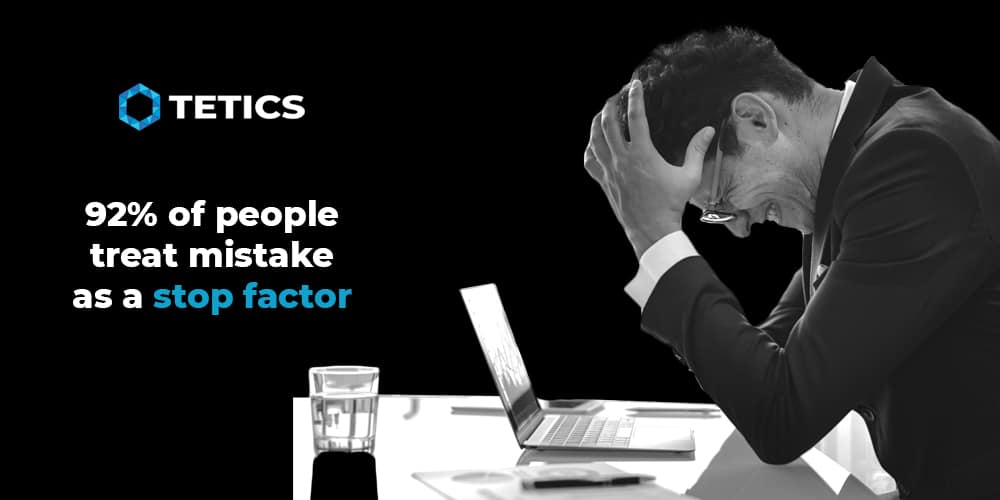
What have we already discussed about mindset changing?
— We like in skillset-driven society
— ANTs in your mind
— How many satellites were launched based on motivation only
— How to do the splits
If you look at the world of big business, it may seem to be inhabited by aliens – they think differently, they use other abstractions, they are not afraid to take risks and make responsible decisions, and so on.
We are very, very similar by nature: we have poor reactions to loud sounds (claps or shots) and the loss of balance, these are two things, which neither psychologists nor smart books can actually affect. A set of personal fears and preferences is formed later, when we start gaining experience and somehow reflecting on it.
Example 1. A child breaks the cup and looks at the parents — if a broken cup is a disaster in this family and the child is scolded, it is fixed. If the mother or father softly tells the child to stand still and bring him slippers so that the child does not get hurt on the broken glass, this also is fixed.
Example 2. A child sees parents quarrelling over money and sees them coming back from work tired and exhausted. What is fixed in the mind? That work is exhaustive, and money is the reason for conflicts. If parents come back home and tell something interesting about their work, and the clever mother softly said several times that their dad is doing a good job, he works a lot and that is why their family got a chance to go to the sea and now everyone is happy eating ice cream – this has also is fixed.
What else is fixed in our mind and discourages us in the future? – attitude towards mistakes and refusals.
We understand that one can be skeptical about the researches of psychologists and sociologists (we also smile a little when reading articles where psychologists operate with numbers), but based on several sources, we found out that only 8% of people on average are okay with mistakes, when remaining 92% see a mistake bad and, ideally, try to avoid mistakes. Even if to avoid them means not to start any business at all.
Let’s focus on this issue. Ninety-two percent of people will not risk trying something new to avoid a mistake. We really don’t want to scold the secondary education system, but it seems that we feel some kind of a distant presence from there. Red pen, underlying mistakes, comments for parents, assessment of your performance for the first 10-12 years. A mistake reduces your grade. Reduces self-awareness, because in the system of self-identification and social identification, most of us are students at school age. If you get poor grades, you are a bad student, because you do badly at school.
Now, many of us certainly understand that a grade assigned to a student when he/she demonstrates knowledge, is not only an assessment of his/her efforts, but there is also an assessment of the process of education itself, an assessment of the teacher, an assessment of the grading system itself, finally. But it has stuck in our minds firmly and for long. 92% of people are afraid of mistakes and prefer not to try so that to avoid making a mistake. That means that 92% people already have chains in their minds, containing impulses responsible for making these decisions. To be more precise, for making decisions not to do something that can cause mistakes.
Let’s look at this situation from a different angle.
There is a person who studied something – completed the course, passed the test (we all know how to do that from school and institute). And now we have to join the team and to apply gained knowledge. For example, to invite a real person for 1:1 Meeting and tell him/her, what you as manager, are dissatisfied with his/her job. Or to propose the Client new features in his product that, no guarantee, can lead to some changes. Not in theory, but in practice that was not included in the course a person attended.
Let’s have a look at a more applied situation. Own business. To start your own business or to discuss new project / new product with management.
Will the knowledge of how to do business or how to start a business help a person, who is afraid of taking steps and doing mistakes? Ask your manager or the owner on how many times did he/she make a mistake before starting his/her own business and how many times does he/she make mistakes every day now, when succeeded?
We hope that our arguments on why we are so reluctant to change our behavior and the way of thinking will, in addition to some feeling of disappointment, also encourage you to think in the right direction, towards understanding that what we do or not do depends on our brain, on how it is trained to think. And it depends much more on that than on the skills gained, though they also should not be disregarded.
Good news is that a person is retrained not only to do something differently, but also to think differently. We, as a biologic species, know how to do that.
Stay tuned, colleagues. This week we will tell you about the program we have already made, launched and adjusted. About the program of change, or rather, mindset upgrading.
⭐ Tetics — access point into the program of your changes ⭐